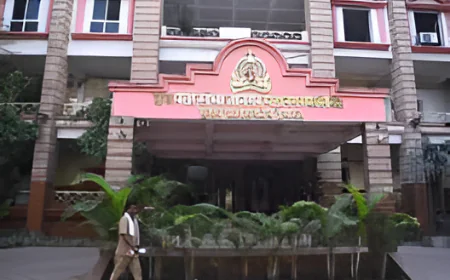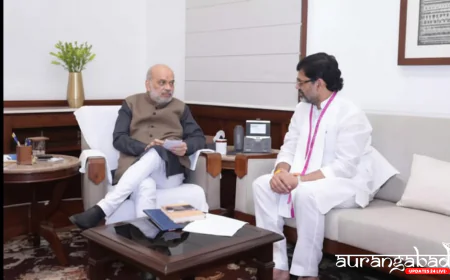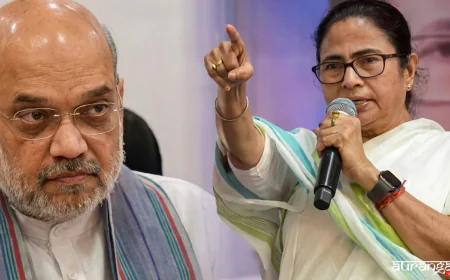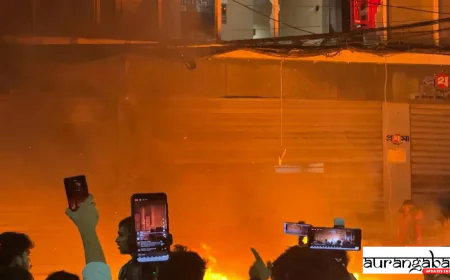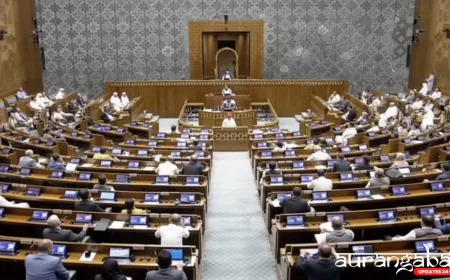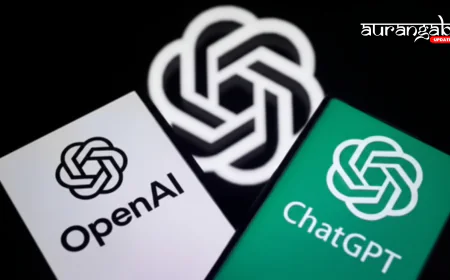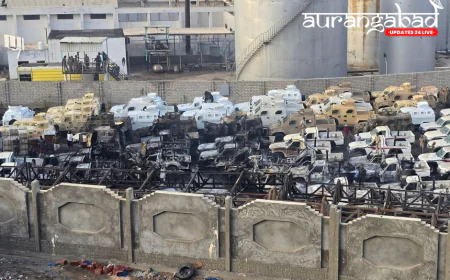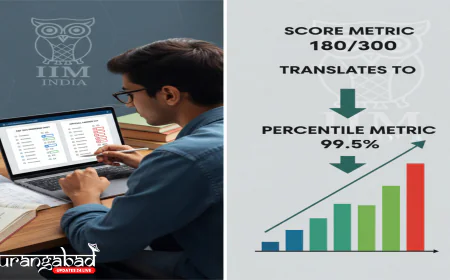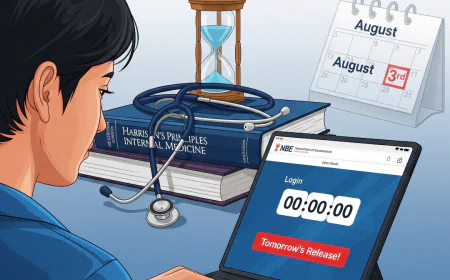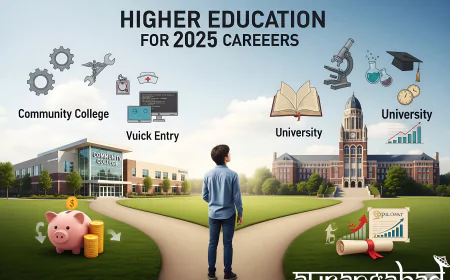KDMC Officials Boost Civic School Learning with 'Guardian' Program
Kalyan Dombivli Municipal Corporation launches innovative 'guardian' program, assigning senior officials to schools to assess student learning, train teachers, and enhance quality education with tech-aided tools.
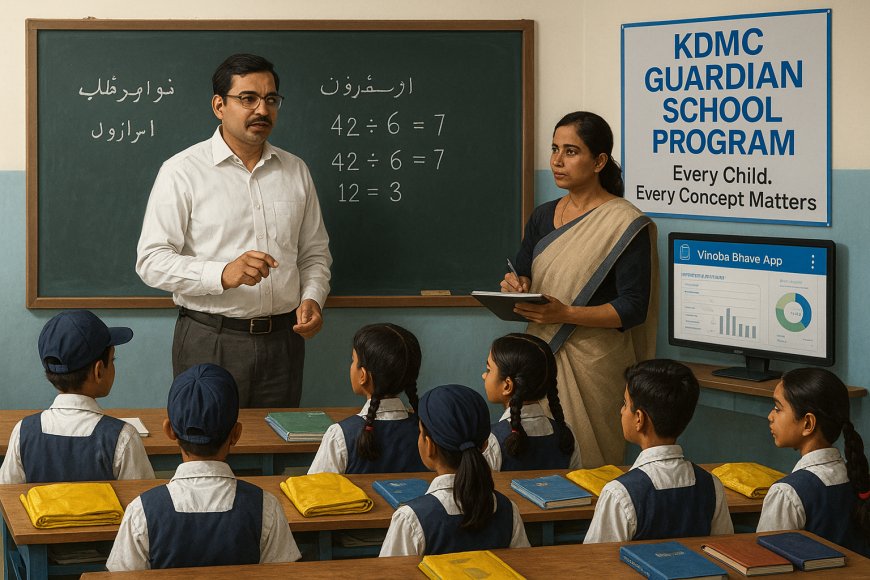
KDMC Pioneers Innovative Education Program: Senior Officials Turn 'Guardians' to Revolutionize Civic School Learning
Kalyan-Dombivli, Maharashtra – In a pioneering stride towards elevating the quality of public education, the Kalyan Dombivli Municipal Corporation (KDMC) has launched an innovative and comprehensive program designed to meticulously assess and significantly enhance the learning capabilities of students enrolled in its civic schools. At the heart of this transformative initiative is a unique model that designates senior KDMC officials, ranging from the Municipal Commissioner to Assistant Commissioners and various department heads, as direct 'guardians' for each of the 61 schools under the corporation's purview. This hands-on approach reflects a profound commitment from the highest echelons of civic administration to nurture intellectual growth and ensure academic excellence for every child.
This groundbreaking 'guardian' system fundamentally redefines the traditional oversight mechanisms within public education. Instead of merely administrative supervision, these high-ranking officials are now personally tasked with evaluating pupils' comprehension and subject knowledge, effectively stepping into a role akin to engaged parents or dedicated academic mentors. The active participation of KDMC Commissioner Abhinav Goel exemplifies this commitment; he has personally adopted an Urdu school in Kalyan West as his guardian responsibility, going beyond symbolic gestures to actively engage with students by teaching them directly using the blackboard. This direct involvement by top brass is not just about assessment; it signifies a powerful message of accountability, ownership, and a collective endeavor to elevate educational standards. It bridges the often-existing gap between policy-making and on-ground implementation, allowing for real-time feedback and agile adjustments to educational strategies.
The journey towards this academic upliftment began even before the current academic year commenced. The KDMC's Education Department, under the astute leadership of Deputy Commissioner Sanjay Jadhav, undertook a substantial infrastructural enhancement across all 61 civic schools. This critical preparatory phase ensured that students returned to upgraded learning environments, equipped with essential resources. Each student received new uniforms, textbooks, raincoats, and access to an array of additional facilities, addressing fundamental needs that often impede learning in underserved communities. Jadhav articulated the corporation's clear vision: "Now we want that the children studying in schools should get quality education." This statement encapsulates the shift from merely providing access to education, to unequivocally focusing on its qualitative aspects.
To achieve this ambitious goal of delivering truly high-quality education and boosting students' intellectual prowess, the KDMC initiated an extensive professional development program for its teaching fraternity. A substantial cohort of 250 teachers, representing all 61 civic schools, underwent specialized training. This rigorous program focused on modern pedagogical techniques, innovative teaching methodologies, and, critically, on how to effectively assess and enhance the intellectual levels of children beyond conventional academic testing. The emphasis was on fostering critical thinking, problem-solving skills, and a deeper understanding of concepts, rather than mere rote memorization.
A pivotal tool in this diagnostic and intervention process is the sophisticated "Vinoba Bhave application." This specially developed digital platform is being utilized to comprehensively assess students' intellectual capacity and identify precise learning gaps. The application houses a meticulously curated bank of class-appropriate questions, spanning from first to tenth standards, enabling a standardized yet individualized evaluation of each student's comprehension levels across various subjects. This data-driven approach allows for granular insights into student performance, pinpointing specific areas where a child might be struggling. Once these learning deficiencies are identified in any particular subject, the respective subject teacher is mandated to provide targeted, remedial support, ensuring that no child is left behind due to academic gaps.
The role of the appointed guardian officers extends to the culmination of this assessment cycle. These senior officials will conduct the final assessments of students' intellectual capabilities. This conclusive evaluation serves a dual purpose: it gauges the effectiveness of the teaching interventions and aids in identifying any persistent teaching inadequacies within the system. By closing this feedback loop, the KDMC aims to continuously refine its educational strategies and improve overall teaching standards. The Education Department has outlined a clear timeline for this intensive initiative, planning its continuation until November to ensure robust and proper implementation, allowing sufficient time for observations, interventions, and measurable progress.
The potential impact of KDMC's 'guardian' program is multifaceted and far-reaching. For the students, it promises a learning environment where their individual needs are recognized and addressed, fostering genuine intellectual curiosity and improving academic outcomes. For the teachers, it represents an opportunity for professional growth, supported by continuous training and oversight from senior leadership. For parents, it builds greater trust and confidence in the public education system, knowing that their children are receiving direct attention from top municipal officials. Ultimately, for the Kalyan-Dombivli community, this initiative lays the groundwork for a more educated and skilled future generation, capable of contributing meaningfully to society. While challenges such as ensuring consistent application across all schools, managing the time commitment of senior officials alongside their primary duties, and adapting to the diverse learning needs of thousands of students may arise, the systematic approach and high-level commitment signal a strong intent to overcome them.
KDMC's innovative program stands as a beacon for other municipal corporations and local bodies across India, demonstrating how dedicated administrative leadership can directly catalyze significant improvements in public education. In an era where quality education remains a cornerstone of societal progress, Kalyan-Dombivli is setting a commendable precedent, striving to ensure that every child, regardless of their socio-economic background, has access to a robust and intellectually stimulating learning experience. This pioneering endeavor is a testament to the transformative power of proactive governance in shaping a brighter educational future









